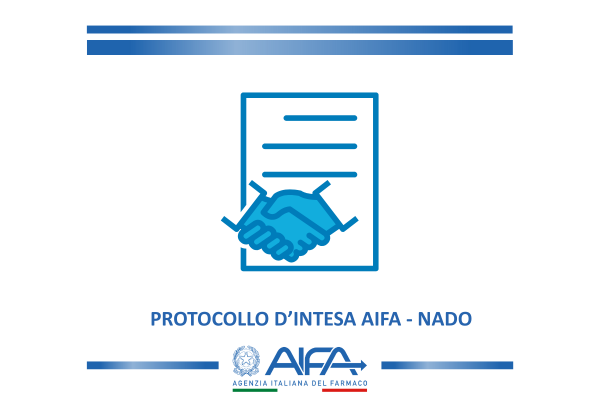.png) Agenzia Italiana del Farmaco
Agenzia Italiana del Farmaco
EMA recommends withdrawal of pholcodine medicines from EU market - EMA recommends withdrawal of pholcodine medicines from EU market
EMA recommends withdrawal of pholcodine medicines from EU market
EMA’s safety committee, PRAC, has concluded its review of medicines containing pholcodine, which are used in adults and children to treat non-productive (dry) cough and, in combination with other active substances, for the treatment of symptoms of cold and flu, and has recommended the revocation of the EU marketing authorisations for these medicines.
During the review, the PRAC evaluated all available evidence including the final results of the ALPHO study, post-marketing safety data and information submitted by third parties such as healthcare professionals. The available data showed that use of pholcodine in the 12 months before general anaesthesia with neuromuscular blocking agents (NMBA) is a risk factor for developing an anaphylactic reaction (a sudden, severe and life-threatening allergic reaction) to NMBAs.
As it was not possible to identify effective measures to minimise this risk, nor to identify a patient population for whom the benefits of pholcodine outweigh its risks, pholcodine-containing medicines are being withdrawn from the EU market and will therefore no longer be available by prescription or over-the-counter.
Healthcare professionals should consider appropriate treatment alternatives and advise patients to stop taking pholcodine-containing medicines. Healthcare professionals should also check whether patients scheduled to undergo general anaesthesia with NMBAs have used pholcodine in the previous 12 months, and remain aware of the risk of anaphylactic reactions in these patients.
The PRAC recommendations will now be sent to the Coordination Group for Mutual Recognition and Decentralised Procedures – Human (CMDh) for consideration at its next meeting in December 2022.
Information for patients
- A recent study showed that use of pholcodine-containing medicines, which are used to treat dry cough in adults and children, is linked to a risk of anaphylactic reactions (a sudden, severe and life-threatening allergic reaction) to certain medicines called neuromuscular blocking agents (NMBA) that are used in general anaesthesia.
- As no effective measures have been identified to minimise this risk, pholcodine medicines are being withdrawn from the EU market.
- If you are taking pholcodine, talk to your doctor or pharmacist – they will suggest a different treatment.
- If you require general anaesthesia with NMBAs and have taken pholcodine in the past 12 months, talk to your healthcare professional and ask any questions you may have.
Information for healthcare professionals
- Results from the recent ALPHO study show that use of pholcodine during the 12 months preceding anaesthesia is linked to a risk of perianaesthetic anaphylactic reaction related to neuromuscular blocking agents (NMBAs) (OR adjusted=4.2 CI 95% [2.5; 6.9]).
- As no effective measures have been identified to minimise this risk, the marketing authorisations of pholcodine-containing medicines are being revoked in the EU.
- Healthcare professionals should no longer prescribe or dispense pholcodine-containing medicines and should consider appropriate treatment alternatives. Patients should be advised to stop treatment with these medicines.
- For patients scheduled to undergo general anaesthesia with NMBAs, healthcare professionals should check whether patients have used pholcodine-containing medicines in the last 12 months and maintain awareness about potential perianaesthetic anaphylactic reaction related to NMBAs.
A direct healthcare professional communication (DHPC) including the above recommendations will be sent in due course to healthcare professionals prescribing, dispensing or administering these medicines. The DHPC will also be published on a dedicated page on the EMA website.
More about the medicine
Pholcodine is an opioid medicine that is used in adults and children for the treatment of non-productive (dry) cough and, in combination with other active substances, for the treatment of symptoms of cold and flu. It works directly in the brain, depressing the cough reflex by reducing the nerve signals that are sent to the muscles involved in coughing.
Pholcodine has been used as a cough suppressant since the 1950s. In the EU, pholcodine-containing medicines are currently authorised in Belgium, Croatia, France, Ireland, Lithuania, Luxembourg and Slovenia, either subject to medical prescription or as over-the-counter medicines. They often contain pholcodine in combination with other substances and are available as syrups, oral solutions, and capsules under various trade names and as generics. Pholcodine is marketed under various names including Dimetane, Biocalyptol and Broncalene.
More about the procedure
The review of pholcodine was initiated on 1 September 2022 at the request of France, under Article 107i of Directive 2001/83/EC.
The review has been carried out by the Pharmacovigilance Risk Assessment Committee (PRAC), the Committee responsible for the evaluation of safety issues for human medicines, which has made a set of recommendations. The PRAC recommendations will now be sent to the Co-ordination Group for Mutual Recognition and Decentralised Procedures – Human (CMDh), which will adopt a position. The CMDh is a body representing EU Member States as well as Iceland, Liechtenstein and Norway. It is responsible for ensuring harmonised safety standards for medicines authorised via national procedures across the EU.
|
Update as of 16 December 2022: On 1 December 2022, EMA’s safety committee, PRAC, concluded its review of medicines containing pholcodine, which are used in adults and children to treat non-productive (dry) cough and, in combination with other active substances, for the treatment of symptoms of cold and flu, and recommended the revocation of the EU marketing authorisations for these medicines. The PRAC recommendations were sent to the Coordination Group for Mutual Recognition and Decentralised Procedures - Human (CMDh), which endorsed them and adopted its position on 14 December 2022. As the CMDh position was adopted by majority vote, it will now be sent to the European Commission, which will issue a final legally binding decision applicable in all EU Member States. |
Published on: 02 December 2022







